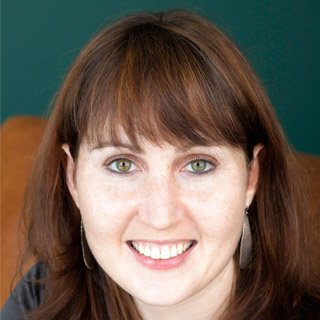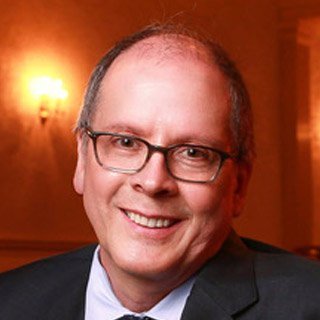City of tomorrow
Building a better future
October 13 & 14, 2020
A Virtual Co-Production Between 92Y and Hundred Stories
#CityOfTomorrow2020
about
What does the city of tomorrow look like in a post–covid world? How can we make a city like New York healthier? How can we build a more equitable and sustainable future through public policy, infrastructure, urban planning and design? What lessons can policymakers, developers and designers learn from the crisis? Join us for the 4th annual city of tomorrow, the only B2C and B2b forum uniting key players from the worlds of architecture, real estate, and interior design. This year, for the first time, the summit will be hosted as a virtual program as we convene online the leading voices and visionaries to discuss the topics defining the future of the industry, the city and beyond at this watershed moment.
TUESDAY, OCTOBER 13, 2020
Starts at 10 am
10:00am Building a More Equitable Future
Charles L. Davis II, Eran Chen, Shachi Pandey, moderated by Jonathan Bowles
As our City prepares for the post-pandemic “new normal,” what opportunities can be seized to address years of systemic racism in our infrastructures? If now is the time to explore ways to develop affordable homes near transit hubs, safe and accessible public spaces, new public charter schools, how can we be sure that the revitalization of the city will create a more equitable metropolis? Join a panel of experts who are working on the frontlines for significant, lasting change for all of New York City.
10:35am Cities Beyond NY: What’s Working?
Vishaan Chakrabarti, Jan Vapaavuori, Anthony Foxx, moderated by Nicole Flatow
How are other cities — in the US and beyond — responding to challenges? Who is implementing the new ideas that work? What hasn’t worked, and why? An examination of how methodology might be applied to what our own city confronts, and lessons we might learn from failed attempts. Our cities are scattered, but our challenges are shared: sustainability, public health, infrastructure, more equitable societies — a global discourse has never been more essential
11:15am Bringing Back New York
Kathryn Wylde, Scott Rechler, Sarah Kaufman, moderated by Seth Pinsky
How do we get New York City back on its feet post-Coronavirus? What is being done to revitalize our economy, fill vacant storefronts, return workers to their office buildings, address homelessness, make mass transit hum, and bring our residents home? Experts weigh in.
11:45am Cultural Institutions and Covid: The Pivot, The Potential
Louise Mirrer, Max Hollein, Brian Jones, Seth Pinsky, Eduardo Vilaro, moderated by David van der Leer
Culture and the arts are the lifeblood of New York, as they are for many cities. Cultural institutions are essential to our social connectivity, the energy and pulse of a city, even our mental health. When they were forced to shut their physical doors this spring, many of them pivoted and began driving virtual engagement through livestreams and other innovative online programming. What they found surprised some — record audiences, new ones gained, archived content viewed by tens of millions.
12:30pm Making Cities Smarter
Jessica Rosenworcel, Daniel L. Doctoroff, Daniel Castro, moderated by Emily Tisch Sussman
How can smart cities bring infrastructure and technology together to improve their citizens’ quality of life? With 50% of the world projected to be living in cities by 2050, the application of urban technologies is an essential investment for a sustainable and equitable urban fabric. Who is at the forefront of these advancements, and does NYC stack up? What needs to happen for us to see the robust data connectivity necessary for optimal access to public health and education, optimization of the flow of vehicles (electric and autonomous) and pedestrians? What are the smartest pathways to smarter cities?
As the city’s museums reopen to our collective joy, it will be with new ways of experiencing their collections and spaces, offering a glimpse at how other institutions will be reimagining their own experiences. How have NYC’s cultural institutions adapted to the pandemic? What infrastructure changes can we expect to emerge? And what has this crisis taught us about delivering cultural experiences in new ways that might transcend crisis?
1:00pm Making Hospitals Work Better
Niyum Gandhi, Lionel Ohayon, Jim Crispino, moderated by Kirsten Waltz
How is the pandemic reshaping patient care? How does a physical space — a hospital, a physician’s office, a clinic — impact care, treatment, and recovery? Hear perspectives from America’s leading medical institutions, health experts and architects about how hospitals and related facilities are being reimagined to provide next-generation levels of care, cure and patient empowerment.
1:30pm Ric Burns: Looking Back in Looking Forward
How has history shaped the New York City we currently inhabit? What lessons from the past can we take with us to reimagine the future of the greatest city on earth? Filmmaker, writer and historian Ric Burns, who created the acclaimed eight-part PBS series New York, brings his unique lens to these questions, and more.
WEDNESDAY, OCTOBER 14, 2020
Starts at 10am
Opening Remarks by Stellene Volandes
Editorial Director of ELLE DECOR, Stellene Volandes, will open the morning with remarks addressing the new November Cities issue and her passion for urban living.
10:00am The Power of Interiors
Sheila Bridges, Alexandra Lange, Forest Young, moderated by Asad Syrkett
Since the start of the COVID-19 pandemic, our homes have served as spaces of refuge and places from which to engage our neighborhoods and cities in a volatile time. In a conversation with design writer Alexandra Lange and graphic designer and Yale University senior critic Forest Young, we'll explore the power of interiors to—through the design choices we make—provide a platform from which to express support, dissent, and an abiding love for our cities.
10:30am Celebrating Biophilia: World-Renowned Designer Thomas Heatherwick
Moderated by Sarah Medford
In conversation with the prominent culture writer and editor Sarah Medford, Thomas Heatherwick, the founder of the London-based Heatherwick Studio, will talk about his team’s approach to making more people-orientated places. Referencing projects such as Little Island in NYC, the recently completed Eden in Singapore, and a new cancer care center in the UK, Thomas will talk about how looking to nature in the design of new buildings and cities can help to create better places for everyone.
11:00am The Developers’ New Normal
Alison Novak, Helena Durst, Jean-Gabriel Neukomm, Michael Phillips moderated by Vivian Toy
What do our residential, retail and office buildings look like in a post-Covid world? Hear from renowned developers and architects about how they're adjusting their pre-Covid plans and creating entirely new ones. Get a glimpse of what the next generation of New Yorkers can expect from the built environment (whether they are working or living in it), and a bonus: a look inside some of the most highly anticipated properties coming to market.
11:30am Parks and Re-Creation: Open Ideas for Open Spaces
Charles Renfro, Mitchell J. Silver, Pam Elam, moderated by Signe Nielsen
New York City’s nearly 2,000 public spaces, including beloved parks and plazas, are facing extreme financial hardship due to budget cuts. And the role of these spaces now goes far beyond recreation. How does the city plan to preserve and grow our precious open spaces? How are we addressing the controversy surrounding monuments? We spotlight the urgency surrounding public spaces and their critical place in a livable and thriving society.
12:00pm Are People Giving Up on New York City?
Jonathan Miller, Dr. Ayman El-Mohandes, Mindy Fullilove, Lindsay Greene, moderated by Brad Grossman
Know someone who has fled NYC for the Hamptons, the suburbs, the mountains, or destinations in between? Seems we all do. The narrative we hear is that people are leaving the city in droves. But does the data actually indicate real or long-term demographic shifts? The "pandemic-powered urban exodus” theory, if real, would lead to profound ramifications from housing prices to the loss of the populations pivotal to maintaining the city’s cultural life, and its prosperity and growth. How are people feeling about New York City, and cities in general, during the pandemic? Our panel of experts discuss.
12:30pm Design, Architecture and Wellness
Paola Antonelli, Emily Anthes, Paul Scialla, moderated by Elizabeth Segran
We are all thinking more critically about our homes and offices and the relationship between buildings and health. The pandemic has shed a spotlight on how housing conditions correlate with a wide range of health problems. It has also opened up a new line of study that looks at the other end of the spectrum, and asks questions like: can our built environments improve overall well-being? Can they enhance our energy levels and moods, our sleep and maybe even prevent disease? Hear from leaders of the wellness design movement on the applications gaining traction today in both the public and private spheres.
1:00pm Moving Us in the Gotham of Tomorrow
Sarah Feinberg, Colin Koop, Wayne Ting, moderated by Greg Lindsay
How will NYC be moving its denizens —projected to be over nine million by 2040 — in the decades ahead? It’s no secret that our airports, train stations and subways are due for much-needed large-scale overhauls. From Grand Central to Penn-Moynihan Station, LaGuardia to JFK Airport, and below ground to above, mass transit is at a pivotal moment. Along with these infrastructure changes, next-gen technology and the city’s mission to reduce carbon emissions and congestion, our metropolis’ transportation ecosystem is at an inflection point.
1:40pm Addressing Isolation in a Time of Social Distancing
Emiliana Simon-Thomas, Brian Geyser, Maja Mataric, moderated by Rachel Jones
More than a quarter of the US population lives alone. With the pandemic mandating quarantines and social distancing, our nation has been forced to reckon with another public health crisis: loneliness. The ramifications of social isolation can be devastating, manifesting serious health conditions and shorter lifespans. In many cases the magnitude of isolation risk twice exceeds that of obesity. How can we mitigate these effects in our most at-risk populations? How can social services, architecture, infrastructure and more offer solutions to foster the human connection that averts a public emergency? Help is on the way.
2:10pm Restaurants and Hospitality 2.0
Daniel Boulud, David Rockwell, Roni Mazumdar, moderated by Hillary Reinberg
Richard Florida, the co-founder of CityLab, senior editor at The Atlantic and professor at the University of Toronto’s School of Cities and Rotman School of Management, has been hailed as one of the greatest American urbanists of all time. His 2017 book, The New Urban Crisis, highlighted the way that the forces powering the growth of superstar cities like San Francisco, New York, Boston, Washington DC, San Diego, and London also generate their vexing challenges: gentrification, unaffordability, segregation, and inequality. Lisa Picard, is President and CEO of EQ Office, a U.S. office portfolio company wholly owned by Blackstone’s real estate funds. Lisa’s vision for the commercial real estate industry is uniquely rooted in cultural anthropology and her leadership at EQ is centered around designing workplace destinations that maximize human potential and bring humanity back into the workplace. Join Richard and Lisa as they have a discussion about the future of cities and workplaces, and how to create more innovative, resilient and creative metropolises amidst rapid automation and technological change.









































































